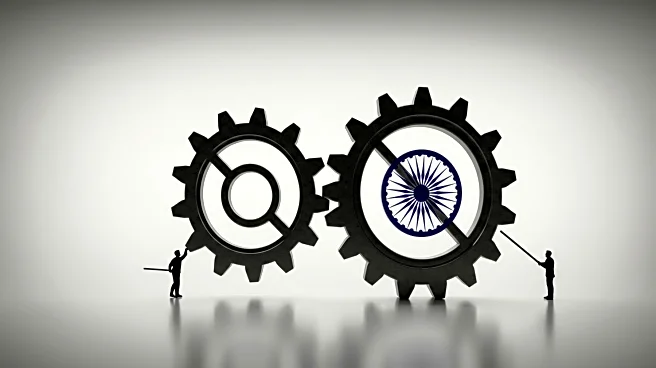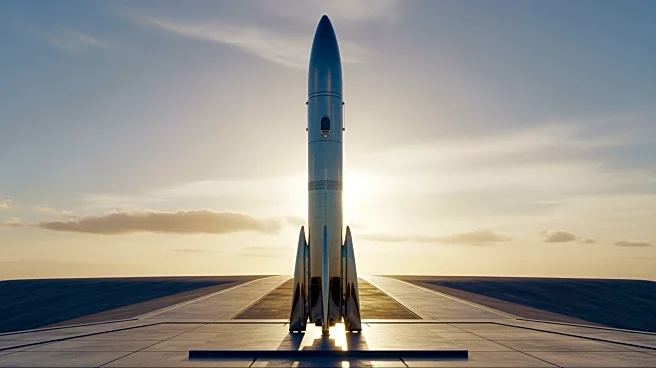What is the story about?
What's Happening?
Despite shared democratic values and economic interests, the U.S.-India relationship remains hindered by historical misalignments. The legacy of Cold War alliances and postcolonial instincts has kept the two nations from becoming true allies. India’s past alignment with the Soviet Union and the U.S.'s partnership with Pakistan have contributed to diplomatic tensions. Recent developments, including U.S. tariffs on Indian exports and India's strategic hedging with Russia and Iran, reflect ongoing challenges in the bilateral relationship.
Why It's Important?
The U.S.-India relationship is crucial for global economic and geopolitical stability. As India emerges as a major economic power, its partnership with the U.S. could enhance technological and defense cooperation, benefiting both nations. However, the relationship's fragility poses risks, especially as China expands its influence in Asia. A stronger alliance could counterbalance China's growing presence and foster regional security. The U.S. must navigate its diplomatic approach carefully to avoid alienating India and missing out on strategic opportunities.
Beyond the Headlines
The U.S. approach to India reflects broader challenges in its foreign policy, particularly in balancing engagement with coercion. India's defiance in energy policy and its strategic partnerships highlight the complexities of international diplomacy. The U.S. must consider long-term strategies that prioritize mutual respect and consistency to build a durable partnership. Additionally, reevaluating its relationship with Pakistan could shift regional dynamics, potentially reducing China's influence and fostering stability.














